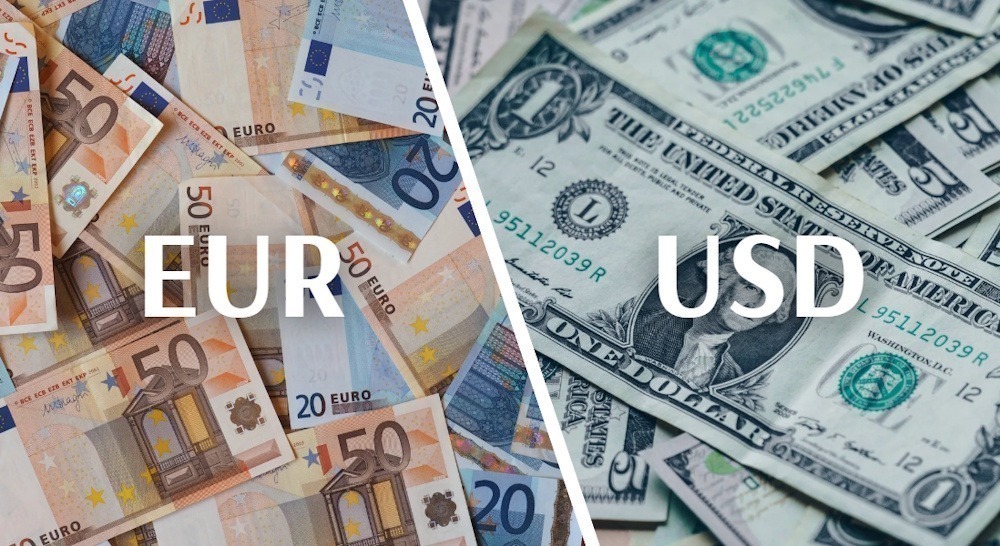The EUR/USD falls beneath the 1.1600 mark, declining more than 0.50% as the US Dollar continues its weekly ascent, achieving gains exceeding 1.70% against a basket of six currencies, the DXY, driven by a risk-off sentiment. Currently, the pair is trading at 1.1563, following a daily high of 1.1648.
The Euro has reached an eight-week low, approaching 1.1540, as the resignation of French PM Lecornu intensifies fiscal uncertainty and heightens investor anxiety. German exports and imports show underwhelming performance; ECB minutes convey a cautious perspective in light of ongoing economic fragility. DXY rises by 1.7% this week as Federal Reserve officials remain cautious regarding inflation, while the U.S. government shutdown extends into its ninth day.
> The dollar continues its upward trend amid a risk-averse atmosphere and subdued market conditions. German data exert pressure on the shared currency : The Euro declined to an eight-week low of 1.1542 on Thursday, influenced by the ongoing political turmoil in France. The resignation of French Prime Minister Sebastien Lecornu raises concerns among investors regarding the nation’s fiscal deficit. In the interim, Lecornu persists in discussions with the opposition, as President Emmanuel Macron is expected to appoint a new Prime Minister by Friday. Recent German economic data indicated that exports fell short of projections, while imports experienced a more significant decline than anticipated. The recent minutes from the European Central Bank meeting indicate that officials maintain a level of confidence while simultaneously adopting a cautious approach in light of significant uncertainty. The US government shutdown has now reached its ninth day. Jeffries indicated that discussions between House GOP and Democrats are currently lacking. Meanwhile, Fed Governor Michael Barr maintained a somewhat hawkish stance, stating that tariffs would not impact services inflation and advocating for a prudent approach to any further easing. Minneapolis Fed President Neel Kashkari expressed that he “basically agrees” with all the points made by Fed Barr.
Latest FX Rate Trends : EUR/USD experienced a significant decline due to the strength of the Dollar
- Minutes from the Fed disclosed the deliberations among policymakers regarding their response to evolving risks, with the majority expressing concerns about inflation, even as they recognized the potential risks in the job market. Officials expressed concerns regarding the safeguarding of the labor market and preferred to implement policy easing “further over the remainder of this year.”
- Fed policymakers are divided on the fed funds rate, with nine advocating for two cuts and Stephen Miren considering additional reductions, while the other nine anticipate either one or no further rate cuts.
- Fed Governor Michael Barr stated that he does not believe there is a widespread spillover of tariffs affecting services inflation. He noted that the unpredictability surrounding inflation and the employment sector necessitates a prudent strategy regarding further rate reductions.
- Additional remarks from Fed Governor Michael Bar indicated that the existing monetary policy is suitable and that interest rates are somewhat restrictive. He perceives considerable risks to the Fed’s inflation target and noted that the latest data might indicate that Gross Domestic Product (GDP) stayed robust in Q3 2025.
- New York Fed President John Williams expressed his endorsement for further interest rate cuts this year, highlighting the potential risk of an additional slowdown in the labor market. His remarks, released on Thursday in The New York Times, highlight increasing apprehension among policymakers regarding the weakening employment landscape.
- The Minutes of the European Central Bank indicated that policymakers perceived no urgent necessity to modify interest rates in September, assessing the risks to inflation and growth as generally balanced, based on the minutes from the policy meeting published on Thursday. The accounts indicated that increased uncertainty regarding global trade policies justified the continuation of the current stance, providing officials with additional time to assess the complete economic effects of tariffs.
- Money markets suggest that the Fed is poised to reduce interest rates by 25 basis points (bps) during the forthcoming meeting on October 29. The probability is currently at 94%.

